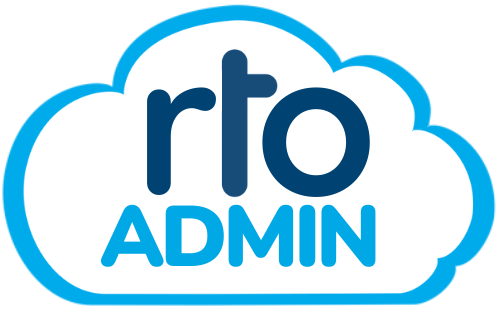Have you ever pondered the importance of choosing accredited training over non-accredited options? In today’s competitive professional landscape, understanding the nuances and significance of accredited training can enhance your career prospects and provide you with a roadmap for lifelong learning. When considering educational and professional development opportunities, it’s crucial to discern the value of accreditation and how it aligns with your career goals and personal development needs.
What is Accredited Training?
Accredited training holds a vital position in the educational and professional development landscapes. It is a form of education or training that has been officially recognized by educational or professional institutions. This recognition is a stamp of quality assurance that the education or skills being provided meet certain standards and criteria that have been established by accrediting bodies.
Why Accreditation Matters
Accreditation serves as a vital mark of quality and assurance. It confirms that a training program has met strict guidelines set by authoritative entities. For those pursuing careers where formal qualifications are not just advantageous but required, accredited training is indispensable. Additionally, accreditation ensures that an educational program is up-to-date with current industry practices, which can be crucial in fields subject to frequent changes, such as healthcare, technology, and finance.
Benefits of Accredited Training
Enrolling in accredited training provides several benefits, from enhancing your employability to increasing your credibility in the field:
- Formal Recognition: Accredited training leads to formal qualifications that are acknowledged universally in academic and professional realms.
- Eligibility for Financial Aid: Many government funding programs and financial aid are available only for accredited programs.
- Career Advancement: Having an accredited qualification can often be a prerequisite for specific job roles or professional growth.
What is Non-Accredited Training?
In contrast, non-accredited training does not have recognition from formal accrediting bodies. It typically focuses more on skill development and practical knowledge that may not require adherence to a set standard.
Characteristics of Non-Accredited Training
Non-accredited courses offer greater flexibility and adaptability, which can be appealing for those seeking specific skill sets quickly:
- Flexible Structure: The courses can be tailored more specifically to current industry needs without adhering to formal educational guidelines.
- Skill Enhancement: They aim at enhancing particular skills or knowledge areas, which might be more immediately applicable in certain job roles.
- No Formal Credentials: While these courses provide valuable learning, they do not result in a formal, accredited qualification.
Choosing Between Accredited and Non-Accredited Training
When choosing between accredited and non-accredited training, consider multiple facets to ensure the decision aligns with your career objectives and personal circumstances.
Evaluating Career Requirements
Determine what is essential for your desired career path. If a formal qualification is mandatory for your target job role, accredited training is a clear choice. Professions in sectors like healthcare, law, and education often mandate accredited credentials.
Assessing Personal Growth Opportunities
For personal growth and development, non-accredited courses can provide a wealth of knowledge without the rigorous demands of formal education frameworks. If you’re transitioning careers or looking to update skills, these more flexible options can be valuable.
Weighing Flexibility and Content Specificity
If your priority is flexibility and the ability to tailor coursework to personal interests or current market needs, non-accredited courses might be more suitable. However, if the structured learning environment of accredited courses better fits your learning style, they may be more beneficial despite being less flexible.
| Aspect | Accredited Training | Non-Accredited Training |
|---|---|---|
| Recognition | Officially recognized by accrediting bodies | Not officially recognized |
| Flexibility | Less flexible in structure and content | Highly flexible in course design |
| Outcome | Formal qualifications | Skill-building and knowledge enhancement |
| Career Requirement | Often necessary for professional roles | Mainly for personal development |
| Funding Eligibility | Eligible for governmental aid | Typically, not eligible |
Understanding the Value Proposition of Accredited Training
The decision to invest your time and resources into accredited training comes with significant considerations. The value proposition of such training is multifaceted, impacting professional growth, societal perception, and personal satisfaction.
Enhanced Employability
A formal accreditation can significantly boost employability. Employers often prefer candidates with accredited qualifications because these credentials demonstrate a specific standard of knowledge and preparation.
Professional Credibility and Recognition
Accreditation provides a level of credibility that is hard to match. It signifies that your skills and knowledge meet a universally recognized standard, thus establishing trust with employers and clients alike.
Investment in the Future
While accredited training often involves a greater time and financial investment, it usually pays off through increased opportunities and job security. In professions where constant learning and adaptation are required, accredited training provides a solid foundation for future learning and career pathway upgrades.
Access to Networking Opportunities
Many accredited programs offer you the chance to engage with peers, instructors, and industry professionals. This network can be invaluable for career advice, job opportunities, and professional growth.
Incorporating Non-Accredited Training for Skill Enhancement
While the advantages of accredited training are clear, non-accredited training also holds unique value by complementing formal education and providing targeted skill development.
Immediate Application of Skills
Non-accredited training often hones in on specific skills that you can apply immediately in the workplace. This makes it highly relevant for those looking to develop particular competencies for immediate job requirements or career transitions.
Adaptability to Trends
With non-accredited courses, there’s an ability to quickly adapt to new trends and technologies. This continuous learning approach ensures that your skills are always in sync with the current industry demands.
Cost-Effectiveness
These courses tend to be more cost-effective, enabling you to acquire new skills without a considerable financial burden. They are a viable option when budget constraints are a significant concern.
Contribution to Lifelong Learning
By participating in non-accredited training, you contribute to a mindset of lifelong learning. This approach ensures continual personal and professional development throughout your career.
Balancing Accredited and Non-Accredited Training
To maximize your career potential, it might be beneficial to adopt a combination of both accredited and non-accredited training. This dual approach ensures a comprehensive skill set suited to both achieving professional standards and custom-tailoring skills to align with current job demands.
Strategic Blending
Engage in strategic blending by pursuing accredited courses to meet foundational requirements while participating in non-accredited programs for skill enhancements and updates. For example, after gaining a formal qualification, use non-accredited courses to continuously update industry-specific skills.
Cross-Pollination of Knowledge
View non-accredited courses as an avenue to discover new interests and sectors that could complement your primary career path. This broadening of knowledge can lead to innovative problem-solving skills and unique career opportunities.
Personalized Learning Paths
Combining both types of learning allows you to create a personalized educational pathway that is suited to growth, ensuring that you meet both personal goals and professional standards.
Final Thoughts on Accredited Training
The decision between accredited and non-accredited should always hinge on your personal and professional aspirations. Quality education and training are paramount to career success, and understanding the value of accreditation is key to making informed decisions in your educational journey.
Recognizing the significance of accredited training equips you with a framework to evaluate educational opportunities critically and assess their alignment with your professional goals. Ultimately, by considering the pros and cons of both accredited and non-accredited courses, you can tailor your educational experiences to best fit your vision of success.




